By Mary Sinanidis.
As Greek Orthodox Easter approaches, the familiar aroma of roasted lamb, kokoretsi and tsoureki fills most Greek households, evoking memories of childhood.
A vegan for 20 years, social worker Debbie (Despoina) Filippaki says, “Food plays a significant role in our cultural celebrations, evoking memories, emotions, and a sense of belonging; those new to veganism may struggle to belong.”
Debbie says celebrating Easter as a vegan in a Greek Orthodox family can be a unique and rewarding experience that “combines family traditions, cultural celebrations and personal values.” She navigates traditional Easter dishes revolving around meat and dairy products while staying true to her vegan lifestyle.
Her advice is to be patient as it gets easier with time. Apart from an ever-increasing array of meat substitutes, a growing shift in consciousness is also challenging age-old culinary customs as an increasing number of individuals choose veganism.
Antispeciesist Gia Soupos, an outspoken advocate for animal rights, underscores the conflict between the celebration of life and the consumption of animal products during Easter.

“I find it very challenging to witness people justifying their consumption of the flesh and by-products of other animals at any time, but particularly during Easter,” she says.
As a Greek Orthodox Christian, she has seen a “shift” in recent years as more people are seeing the benefits of veganism.
“I personally find this very encouraging and also feel that being vegan is consistent with living life without harming others – as Jesus would have done,” she says.
Meat-free Easter alternatives
Gia says vegans can celebrate Easter with all the trimmings, while also keeping close to Jesus’ teachings.
“I am very fortunate that my sibling is also vegan and an anti-speciesist. As such, my immediate family are respectful of our moral and ethical choices and we celebrate Easter with all the traditional Easter meals but veganised, including magiritsa,” she says, adding that she goes to mass with her vegan candles, enjoys vegan tsoureki and instead of cracking real eggs the family crack vegan chocolate eggs for a bit of fun.
“The egg industry, whether it is free range, organic or casged eggs, come from exploited hens that are slaughtered after they are no longer productive,” Gia says.
Author, chef and academic Ella Mittas is not vegan but has studied Greek and Turkish cuisine through travel.
“Vegans have nothing to miss out on when it comes to Greek Orthodox Easter feasts thanks to all the dishes we traditionally have surrounding the meat,” she says, adding that her book ‘Ela Ela’ has recipes that are 30 per cent meat-free as there is an entire faction of Greek cuisine known as ladera (oil-based) dishes.
“I am not a vegan but what I enjoy most during the Easter table are the vegan side dishes served with the lamb, dishes like fava and other oil-based dishes (ladera). In Crete, they may serve briam which is like a vegan moussaka layered with eggplant, zucchini and rich in olive oil.”
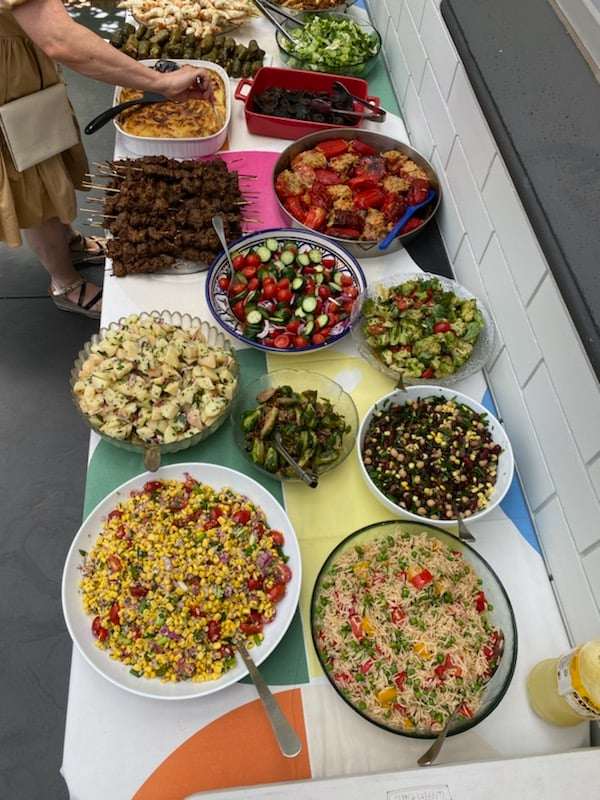
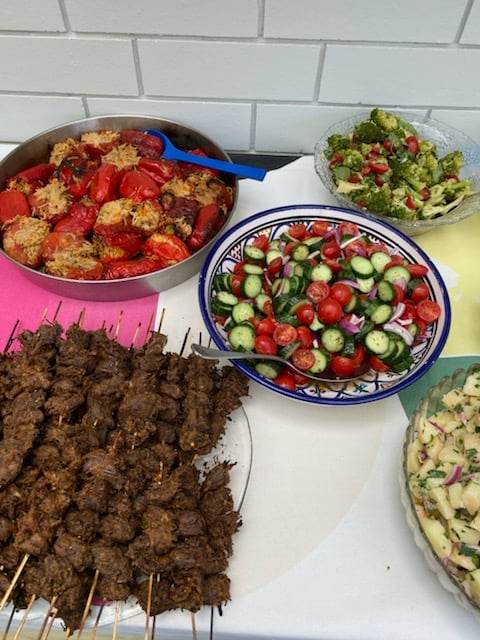
Like Gia, Debbie enjoys Easter without animal products or by-products.
“I decorate the house with fake eggs. The idea is to be cruelty-free and festive at the same time,” she says.
Debbie says she turned to veganism at high school in Athens at a time when people weren’t too aware of what it was.
“Health concerns and an aversion to animal cruelty were the reasons I decided to live this way. When I announced it, those around me viewed me with disbelief thinking it would pass,” she says.
Now a way of life, Debbie says, “I really do not need meat, and I’m not at all tempted by its aromas.”
“Adapting classic Easter recipes to be vegan-friendly requires a thoughtful approach that respects the essence of the dish while incorporating plant-based alternatives. For example, instead of lamb, which is a common centrepiece of the Easter meal, plant-based people usually opt for a delicious roast made from jackfruit marinated in traditional Greek herbs and spices. Tzatziki can easily be veganised by using dairy-free yoghurt and cucumbler,” she says.
Navigating through controversy
Despite her family’s acceptance and adjustments, Debbie has found that not all people are tolerant of her choices, and sometimes it is easier for her to make excuses than to explain why she avoids meat.
“Occasionally someone may start asking questions that I try to avoid. I may tell them that I follow a plant-based diet for health reasons to avoid conversations or having to overexplain things. On Wednesdays and Fridays I often just say I am fasting,” she says.
“As a vegan, I often face pressure to partake in these traditional dishes as a way of honouring cultural customs and family traditions. Many Greek Australian vegans celebrate Easter with family and friends who may not fully understand or support their vegan lifestyle, and this often leads to awkward conversations or misunderstandings.”
With close family members she has discussed dietary choices to “set expectations and foster understanding.” While food choices may vary, she accentuates the positive, “emphasising shared values of compassion, sustainability, and health.” These are the values that Debbie says “underpin veganism” – and they are values of Christianity also which help to foster a sense of unity and connection.
“Approaching the holiday meal with an open mind, a spirit of collaboration and a willingness to explore new culinary horizons is very important,” she says.
“To take people out of a difficult situation, I bring my own food to gatherings. When I share with people they don’t even realise it is vegan and are pleasantly surprised.”
Chef Anastasia Lavrentiadis from Staazi & Co – The Greek Vegan Project restaurant reflects on her journey towards veganism over the last seven years, navigating familial traditions while staying true to her ethical beliefs.
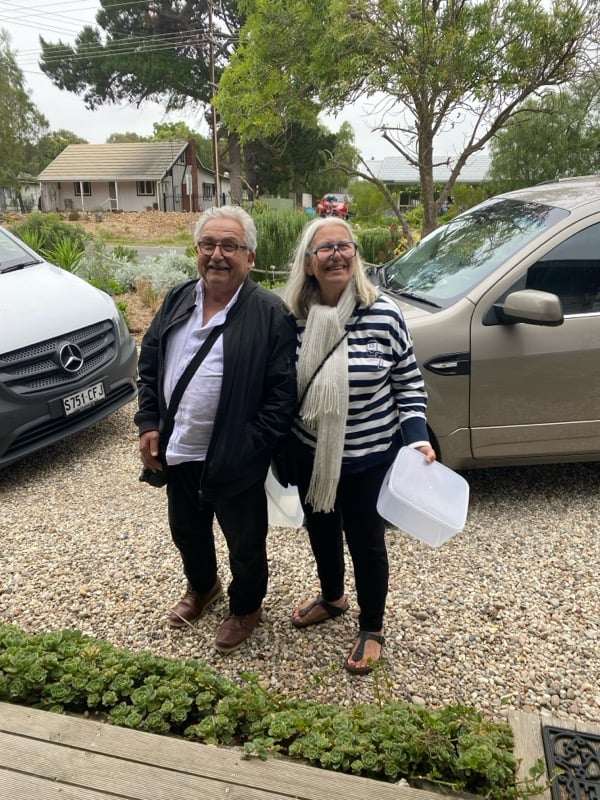

“My family have been very understanding in not just my dietary stance but my ethical viewpoint,” she says, adding that they may follow the traditional meat-eating diet but have shown respect for her choices.
“There is no longer lamb on the spit and we have plenty of vegan dishes, salads and gemista.”
The same does not apply when Anastasia visits her aunt.
“To avoid confrontation, we keep conversations about food minimal,” she says. “Choices that challenge tradition can be emotional but that’s fine.
“With my close family we have been creating new traditions since I began to follow veganism seven years ago.”
Greek roots of veganism
Unlike Debbie and Anastasia, Gia has no problems discussing veganism.
“I find conversations about animal ethics extremely rewarding. Easter is a perfect opportunity to discuss these issues and it is inevitably something people are curious about. I often remind people of the position that Pythagoras took on the exploitation of other animals,” she says.
“Pythagoras, our forefather and a pioneer of ethical veganism, taught his students the important of animal ethics. He believed animals had a soul.”
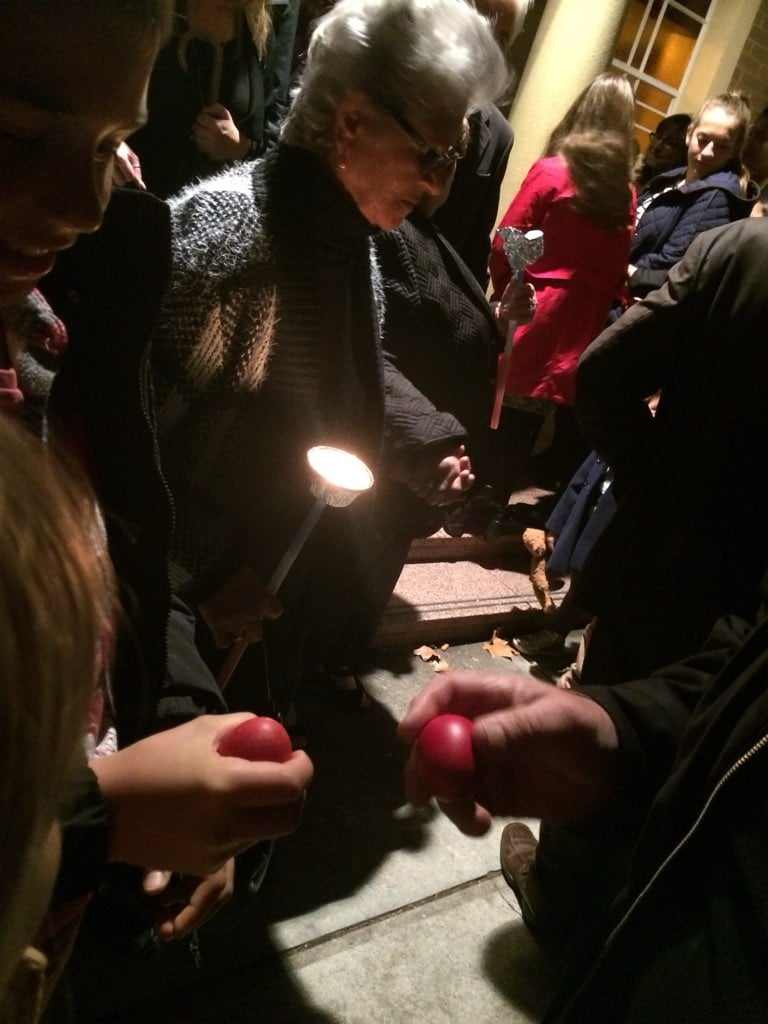
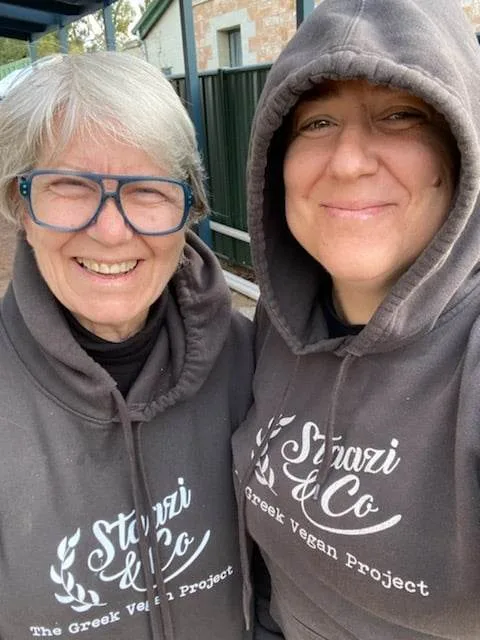
Gia would like for the Greek population to revere Pythagoras not just for his mathematical and philosophical prowess, but to also embrace his position on animal liberation.
Rebirth of the Greek Easter meal
Heated debates are commonplace at any Greek family gathering at the best of times. When Greeks get together they talk politics, social issues and debates ignite.
Over the years, however there has been more understanding on both sides of the fence as everyone goes on their own journey when it comes to the meaning of life and essence of religion.
Despite some resistance to the rise of veganism, the Greek community is doing all it can to shift to alternatives. By embracing these vegan alternatives and challenging entrenched traditions, people like Gia, Anastasia and Debbie pave the way for a more ethical and sustainable celebration. As Greek Orthodox Easter approaches, the evolving landscape of cuisine reflects a journey towards greater awareness and empathy. From traditional side dishes to vegan innovation, the celebration of life intertwines with a commitment to ethical living, reshaping the narrative of Greek Orthodox Easter cuisine for generations to come.






